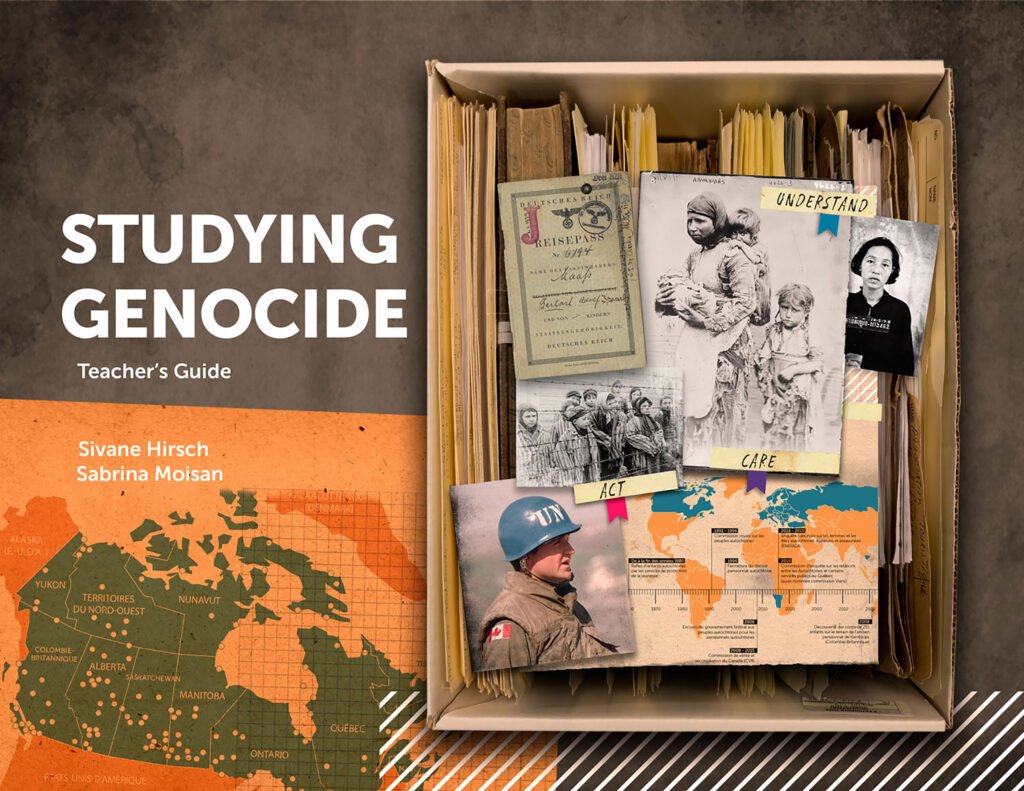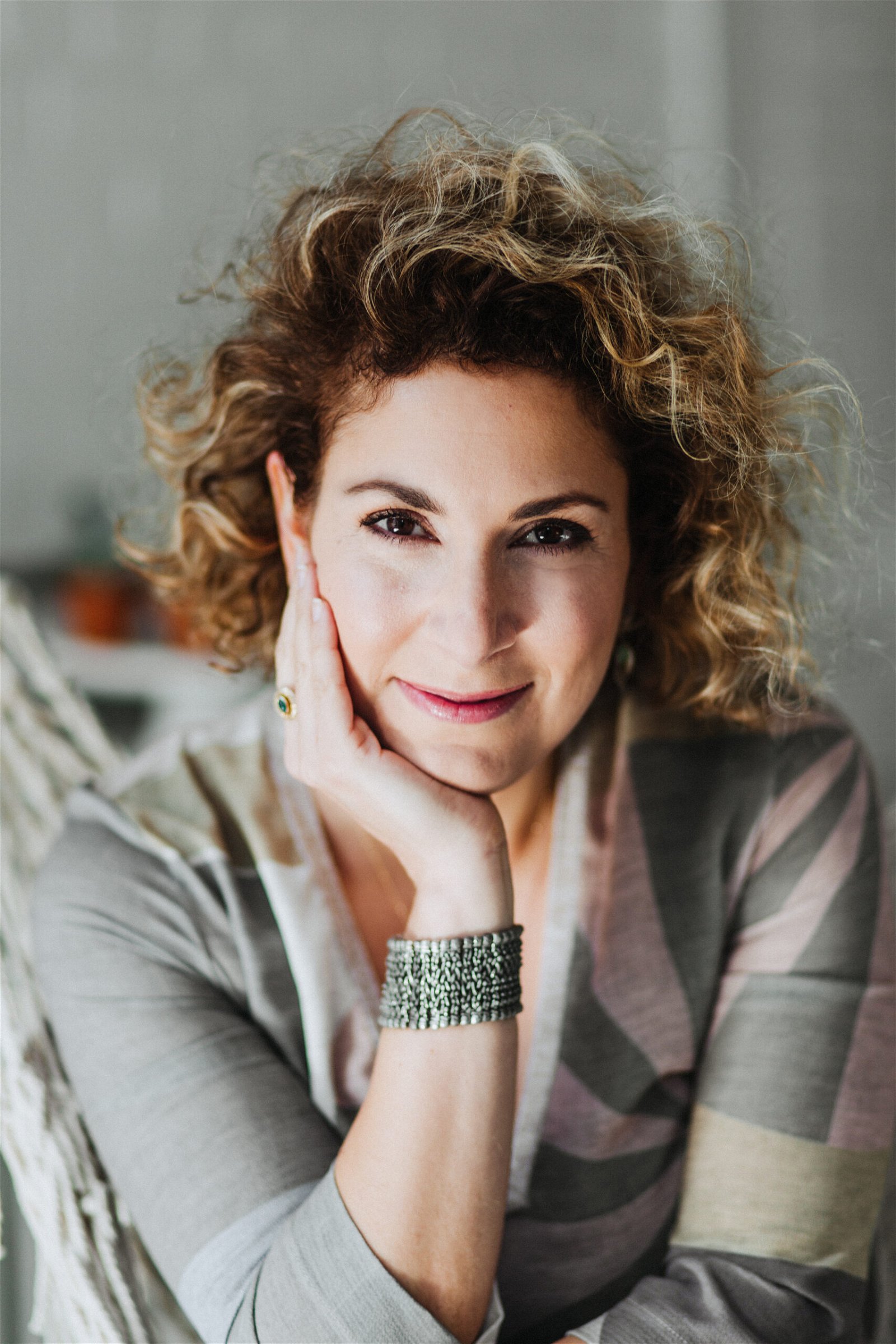Special Issue: Genocide Education for the 21st Century
The Armenian Weekly, April 2023
“You have to understand what caused genocide to happen. Or it will happen again.”
–Tim Walz
Teaching about genocide, particularly at the high school level, can be a daunting task. Educators are often reluctant to approach this highly sensitive topic due to the complexity the study of genocide encompasses. However, the complex nature of this issue is precisely why teaching genocide is so crucial.
In April 2022, after a decade of hard work and overcoming various obstacles, a comprehensive guide on teaching genocide to high school students was launched in the province of Quebec. The interactive guide entitled “Teaching about Genocide” is now available online in French (English to come in spring 2023), reaching over 310,000 students in 800 schools.
 Montrealer Heidi Berger, the daughter of a Holocaust survivor, is the driving force behind this guide. Over the years, in talking to students about the Shoah, she realized there was a profound degree of ignorance about facts surrounding the Holocaust. Berger was determined to bring significant change and help repair this lack of knowledge amongst high school students. In 2014, she created a non-profit organization called The Foundation for Genocide Education (FGE). The main mission of the FGE is to ensure that the history of genocide, as well as the steps leading up to this crime against humanity, are taught in high schools across Canada and the United States.
Montrealer Heidi Berger, the daughter of a Holocaust survivor, is the driving force behind this guide. Over the years, in talking to students about the Shoah, she realized there was a profound degree of ignorance about facts surrounding the Holocaust. Berger was determined to bring significant change and help repair this lack of knowledge amongst high school students. In 2014, she created a non-profit organization called The Foundation for Genocide Education (FGE). The main mission of the FGE is to ensure that the history of genocide, as well as the steps leading up to this crime against humanity, are taught in high schools across Canada and the United States.
The “Teaching about Genocide” guide is the result of a collaboration between The Foundation for Genocide Education and the Quebec Education Ministry, the Montreal Holocaust Museum, and representatives of the various communities highlighted in the guide, including the Armenian National Committee of Canada (ANCC) and the Armenian National Committee of Quebec (ANCQ).
Lead researchers who worked on the guide are Sivane Hirsch, Didactic Professor of Ethics from the Department of Education at Université du Québec à Trois-Rivières, and Sabrina Moisan, Professor of History Education in the Faculty of Education at Université de Sherbrooke.
In the digital age where information is as easily accessible as it is distorted, the lack of awareness and knowledge surrounding genocide is staggering.
The U.S. Millennial Holocaust Knowledge and Awareness Survey published in September 2020 revealed the extent of this ignorance. According to this survey, in the United States, 63 percent of young adults don’t know that six million Jews were killed in the Nazi Holocaust. In fact, 36 percent think the number was “two million or fewer.” Around one in ten respondents were not sure whether the Shoah happened at all or deny that it did. Most appalling of all is that 19 percent of millennials and zoomers in New York State believe that it was the Jews who caused the Holocaust.
In the aftermath of such profoundly traumatic events as the Armenian Genocide and the Holocaust, educating current and future generations — using historical facts and survivor testimonials — is not only a pedagogically sound approach, but it is, first and foremost, an ethical obligation.
Educators in Quebec now have a comprehensive tool that will assist them in teaching about genocide. This guide on teaching genocide offers “a comparative, socio-historical and ethical approach” to the atrocities. “Teaching about Genocide” includes a series of case studies, a list of steps leading to genocide, teaching plans, reference documents and instructional videos. The guide also includes genocide survivor and descendent of survivor video testimonies.
The guide defines the crime of genocide and methodically explains the various stages that have historically led to this crime using Gregory Stanton’s stages. Additionally, it provides thoroughly-reviewed case studies of nine genocides recognized by the United Nations (UN) and the Canadian government. These genocides are the First Nations Cultural Genocide (1876-1993), Herero and Nama Genocide (1904-1908), Armenian Genocide (1915-1923), Ukrainian Holodomor (1932-1933), Roma and the Sinti Genocide (1935-1945), Holocaust (1939-1945), Cambodian Genocide (1975-1979), Bosnian Genocide (1992-1995) and the Genocide against the Tutsi in Rwanda (1994).
The guide also contains a section entitled “Racism, Prevention and Justice.” Each genocide is presented in a similar manner, which enables educators and students to draw parallels between different events through a comparative approach in order to further develop their understanding of the genocidal process.
University professors, educators and community leaders were involved in reviewing the guide. Moreover, in order to ensure that the guide is utilized in an effective manner, training workshops are being offered to teachers.
Board members of the Foundation for Genocide Education (FGE) representing the ANCC and ANCQ were involved in advocacy efforts in order to bring the community’s voice to the table. Furthermore, the ANCC and ANCQ formed an Academic Advisory Council comprised of historians and scholars specializing in the study of the Armenian Genocide. Their academic expertise and advice were indispensable during the process of developing the guide.
High school is a critical period in terms of students forging their world views. Introducing students to the topic of genocide, and encouraging them to learn the facts and think critically around issues of mass human extermination, hate, racism and violence is imperative. This approach will allow youth to be better equipped to build a healthier way of living on both local and global scales.
Understanding the causes of systemic violence is the only way such crimes against others can be prevented. Remembering the names of the genocides is far from sufficient. What is needed is to understand the causes linked to this complex phenomenon and the steps leading up to it. This requires a pedagogical approach that will ultimately activate students’ intellectual, emotional and ethical engagement.
Given the increasingly polarized nature of political landscapes around the world and the rise of online hate, it is now, more than ever, urgent to invest in teaching genocide. Education remains the key to breaking the cycle of hatred which in its extreme forms can lead to genocide.



Be the first to comment